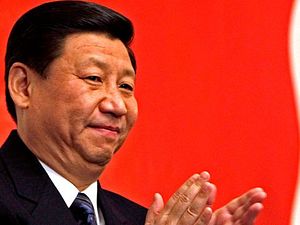At the recently concluded sixth plenary session of the 18th Party Congress of the Communist Party of China’s Central Committee, there were two major political developments. One is that the Party approved two important documents regarding the discipline of the Party itself: “The norms of political life within the Party under the new situation,” and “regulations on intra-Party supervision.” Another is that Xi Jinping has been elevated to “core” status. Both are important political developments and have huge implications for China’s future reforms.
The Party’s two new documents are intended to further strengthen the anti-corruption campaign, which has so far achieved many successes, but there is still a long way to go before officials reach the final stage of simply “not wanting to be corrupt.” As I pointed out in an essay last year, the Party emphasized that anti-corruption efforts are always “on the road,” meaning that any sense of complacency is unwarranted. This, again, is evidenced by a recent popular TV series titled “Always on the Road,” co-produced by the CCDI, the anti-corruption watchdog, and CCTV. Indeed, the video of 14 powerful “tigers” confessing their corruption crimes in front of the camera, available on the internet, has been viewed more than 92 million times. Needless to say, the impact of such a TV series on other Party officials and the whole Chinese public is deep and enduring, which is exactly what the Party hoped for.
The fact that Xi has been elevated to “core” status is additionally not surprising. After all, leaders before Xi, like Deng Xiaoping and Mao Zedong, were also named core leaders during their time at the CPC’s helm. The important thing is not what the title means, as some in the Western media seems to suggest. It is rather about what a leader will do with that title. In that sense, how we should judge a core leader is not by the title itself, but by what the leader does and how the leader implements reforms that are needed for China’s sustainable development.
And Xi Jinping is a reform-minded leader, which is underappreciated by some Western media commentators and analysts. Some analyses put too much emphasis on how much power an individual leader has and predict a power struggle within Chinese politics based on this model, hence the worry about Xi holding too much power within the Party. But this is a misperception for several reasons. First, as a new book by Brookings scholar Cheng Li points out, China is still under collective leadership, despite the seeming fact of Xi being the most important leader. And indeed the Party has repeatedly warned against “overly praising a leader,” thus confirming the point that Xi himself wants to maintain the collective leadership mechanism.
Still, the “core” status is important for China’s reforms. One can argue that many of the good reforms proposed by previous Chinese governments failed to materialize precisely because power was so fragmented, so much so that the former Premier Wen Jiabao once complained that “the center’s orders do not go out beyond the Zhongnanhai compound.” Now China’s reforms have entered the “deep water zone,” meaning that more resistance will come from vested interests at all corners. At such a time, power and authority are necessary means to push through meaningful and tough reforms. Xi and his colleagues perfectly understand this, hence the use of the “core” title.
All in all, it is important to analyze Chinese politics from a Chinese perspective, not from a textbook Western perspective, which can be useful sometimes. Perhaps a combination of both Chinese perspectives and Western perspectives would suit China best in the future.

































